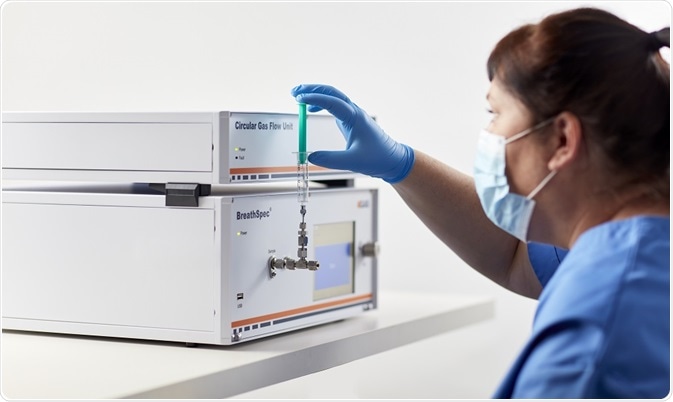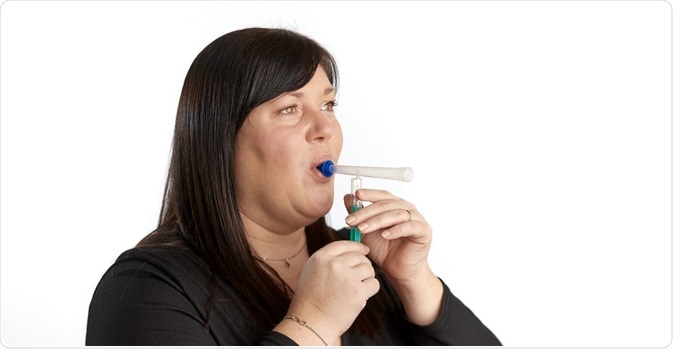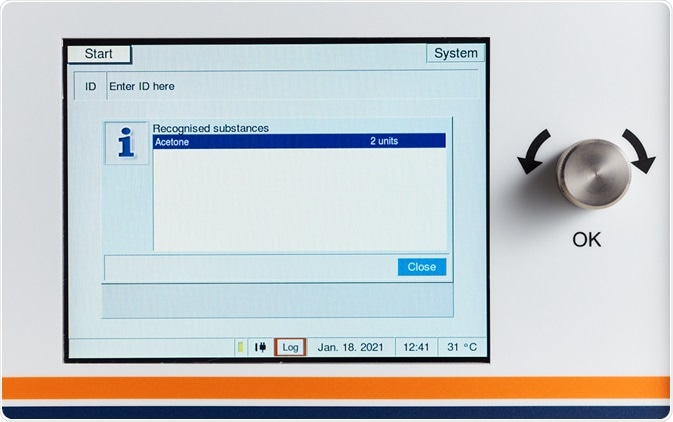‘Health’ and ‘breath’ are two words which, over the past year, have become closely linked. These words have linked breath to illness more frequently than wellbeing during this time.
However, breath does hold an opportunity for good health. It carries detailed personalized information about a body’s internal functioning and processes. The challenge has been in accessing, interpreting and utilizing this information for healthier, longer and happier lives.

The gap to be filled
As a society, we now find ourselves at a ‘now-or-never’ juncture to make a fundamental change in how we encourage health and provide healthcare services, both for individuals and whole populations.
The big gaps in keeping individuals healthy and healthcare services’ abilities to supply appropriate and adequate care for those who have become unwell and require their services are discussed below.
What is ‘health’?
It must be decided whether health is just an absence of disease or a broader societal issue, for example, mental state, social interaction or broader interactions.
Congenital or genetic predisposition to becoming ill where we can support the person, treat the symptoms and increase quality of life but cannot stop the disease, must be separated from the more indirect socioeconomic elements of health where a relationship exists between health and the wealth of an individual.
For instance, lower paid workers who do not get paid if they do not work do not have a fallback position with regard to their health. Large communities where residents are crammed into small spaces are also vulnerable to the spread of any communicable disease.
These issues are a wider discussion that usually does not fit into healthcare yet impact directly on people’s health and no technological solution can overcome this.
Some major gaps in keeping people healthy are to do with a population that is getting older, with more diet and health issues. People are not eating well enough and they are too sedentary and are not exercising enough.
Obesity is a big issue, and problems like diabetes, cardiac and potentially respiratory issues become areas of significant concern. The rise in the number of people with neurodegenerative diseases like Parkinson’s Disease and Alzheimer’s Disease also reflects a difficulty in keeping people healthy for longer.

There are also difficulties relating to the pandemic, particularly in view of how connected the world is. Antibiotic resistance is a massive risk that the human race will be facing in the next few years.
Antibiotics will potentially become less effective as we expose more and more microorganisms to them, so controlling the rate at which antibiotics are prescribed is paramount for our survival as a species.
The difficulties that the pandemic has added in keeping people healthy are also important. Everything was new in the first lockdown, and no healthcare system was ready to deal with the situation.
Things were more familiar in the second lockdown, but issues such as drug abuse and suicide rates have increased. People and resources were made available for the pandemic, but unfortunately, the size of the need has eclipsed the available resource, and comorbidities that were treatable have not been managed.
Deterioration in overall mental and physical and health of people across the age spectrum due to healthcare services not being available is now a big issue. The question is whether people will be dying of such avoidable comorbidities in a couple of years.
Expertise in breath and breath analytics in health and healthcare
As the population grows older, more of these problems will arise. The funding for health services in general, not only in the third world but also in developed countries, does not keep up with inflation and so reduces in real terms.
There is not enough funding for health services and resources for health services to take care of the population in the way that they have traditionally done. This basically means that decisions as to who we test, how we treat them, and then when we treat them must be made.
In the past, the health service has been for individuals who get sick, but a healthcare service such as the NHS in England is at its best when a very serious problem arises.
This is not sustainable given all the pressure that they are under, which means that ideally, illness must be prevented.
Illness needs to be identified much earlier so that it can be treated quickly with much less intensive resources. Achieving that would allow healthcare providers to save resources and to spend the resources that they have across a wider percentage of the population as it is needed.
An earlier diagnosis helps the patient on the correct pathway to avoid full-blown disease. Having a ‘window’ on the body could enable decisions to be made about treatment prior to the patient being seen. This is where breath and breath analytics come in.
The short term opportunity which breath holds lies in hospital triage and a community perspective, particularly to identify patients who are not ill and to make sure that patients who are ill are treated correctly.

In the instance of COVID-19, a fast, non-invasive high throughput breath screening test could detect COVID-19 and stratify the population in terms of infection or how severe the infection is likely to be.
The more quickly that COVID-19 negative and positive patients can be triaged, the faster transmission can be controlled, a targeted referral made for a PCR test made, self-isolation set up and ultimately, the brakes put on the disease.
Earlier identification in the infection cycle could also result in an increased chance of minimizing the disease severity.
The long-term opportunity which comes from breath analysis is the ability to understand more of the volatilome and how this can be linked back to disease as opposed to a state of health.
As this information is identified for more diseases, it has a knock-on impact in terms of the population disease burden and reduces the cost of healthcare significantly through prevention instead of treating symptoms.
About Imspex Medical
Imspex Medical brings the combined power of gas chromatography and Ion Mobility Spectrometry to bear on volatile organic compound analysis as a non-invasive, ultra-sensitive, rapid and reliable way of detecting and diagnosing a wide range of infectious and inflammatory disease states at point-of-need.
At Imspex Medical, we know the value of identifying disease states early. Our objective is to make regular, non-invasive volatile organic compound screening accessible and affordable to maximise individuals’ health, wellbeing and opportunities for economic prosperity.
Sponsored Content Policy: News-Medical.net publishes articles and related content that may be derived from sources where we have existing commercial relationships, provided such content adds value to the core editorial ethos of News-Medical.Net which is to educate and inform site visitors interested in medical research, science, medical devices and treatments.